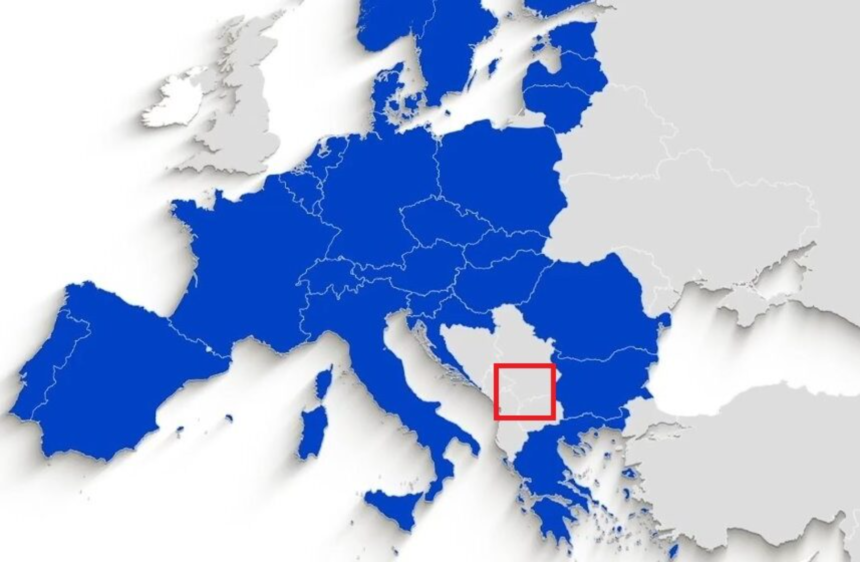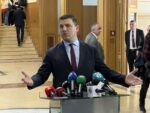On January 1st, 2024, the Schengen Area was expanded to include two new member states – Romania and Bulgaria. To mark the occasion, European Commission President Ursula von der Leyen shared a video on social media platform X (formerly Twitter), showcasing the Schengen countries in blue.
While the new members were highlighted, the video also displayed non-Schengen countries in white, including the six Western Balkan states. However, what caught the attention of viewers was the absence of a border line between Kosovo and Serbia, effectively placing Kosovo within Serbia’s borders on the map.
This oversight was quickly noticed by users, including German politician Doris Pack, who directly questioned her fellow German: “Where is the state of Kosovo?”
The omission sparked a wave of criticism from both local and international figures. As public outcry grew, the video was promptly removed from the European Commission’s social media platforms.
An unofficial spokesperson for the European Union confirmed to Klan TV that the video was taken down once the issue was brought to their attention. “The visual content published on the European Commission’s social media accounts, which was intended to welcome Romania and Bulgaria as full Schengen members, was removed from all platforms as soon as the issue was raised,” the spokesperson explained.
When asked if the European Commission’s stance is that Kosovo is not an independent state, the response remained vague. “The fact that the visuals were removed speaks for itself,” the spokesperson added.
It is worth noting that Ursula von der Leyen had visited Kosovo in October of the previous year, where she held meetings with state leaders. Despite the controversy surrounding the video, her visit had underscored the EU’s engagement with Kosovo, even though Kosovo’s full integration into the EU remains a contentious issue.
The incident highlights ongoing sensitivities regarding Kosovo’s international status and its relations with both the EU and Serbia.







